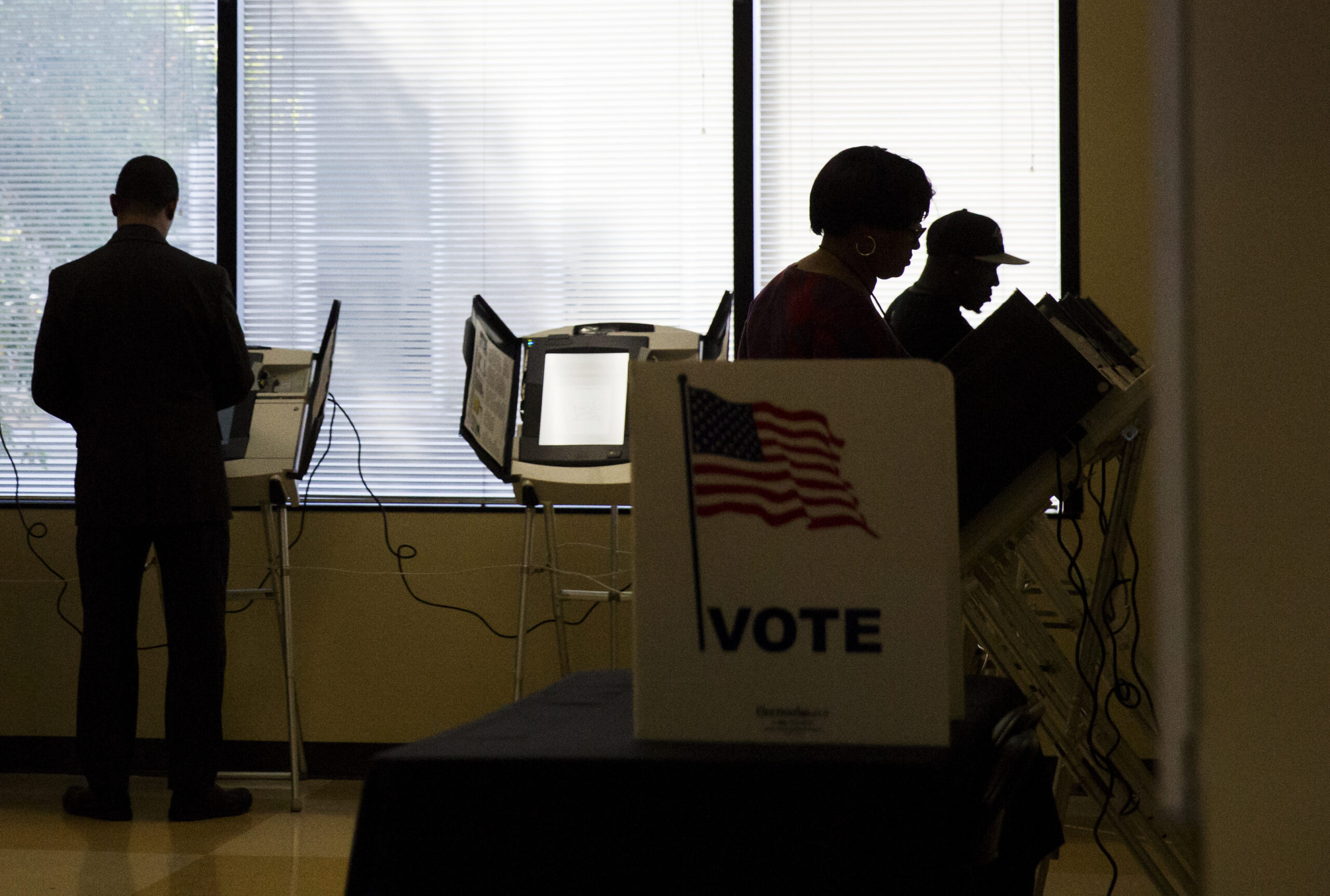Georgians Will Vote Tuesday, But They Might Not Get A Governor Yet

In Georgia, you need a majority of votes to win an election: 50 percent plus one. The Libertarian candidate Ted Metz is polling around 2 percent, and neither of the major party candidates are currently polling high enough to win outright.
David Goldman / Associated Press
While it might be hard to tell from many of the headlines, there are three candidates to pick from for governor on Tuesday. The Libertarian, Ted Metz, is polling around 2 percent.
In Georgia, you need a majority of votes to win an election: 50 percent plus one. And neither Republican Brian Kemp or Democrat Stacey Abrams have more than 50 percent in any polls.
Here’s Ted Metz, the Libertarian candidate, on what that could mean: “We already know there’s enough support for me and there are three other write-in candidates. No one candidate in this election is going to win outright. So it will go to a runoff.”
That runoff would happen fast, on Dec. 4. That’s a lot less time for absentee ballots to come in and usually, a lot less opportunity for early voting.
If that happens, things could get pretty crazy, especially given the litigation already happening over ballots.
“I do think that the continuing litigation about absentee ballots would definitely be ramped up, going into a runoff, especially because the timelines are much more compressed,” Bryan Tyson, an election lawyer at Strickland, Brockington, Lewis, LLP, said. “You only have until December 4th as opposed to the 45 day period we have going into the general election.”
Plus he said that litigation will have to happen really fast.
“The fact that we are only going to have 28 days to go from end of November election to runoff means that any litigation that needs to happen regarding the November election is going to have to happen on an incredibly tight timeline,” he said.
Runoffs have, in the past, favored Republicans and generally tend to draw fewer voters, said Charles Bullock, political science professor with the University of Georgia.
“In the past, when we didn’t have the governor’s contest going into the runoff, we saw a substantial drop-off in participation,” he said.
That could be due to voter fatigue, or less of an interest in the governor’s race, according to Bullock.
“Maybe with this high priority, highly-advertised, very competitive contest, if it goes into a runoff, I’m sure we’ll have some drop-off, but probably not as dramatic as in previous years,” he said.
How does runoff potential affect the campaigns’ strategy?
Mostly related to money, according to Republican strategist Brian Robinson.
“They’re beginning to bring in money for that, just in case. Because there’s no lag time in this atmosphere,” he said.
Both campaigns have about $4 million left to spend.
One thing we can all agree on?
“Everyone involved would prefer that this just gets settled straight up on Tuesday, because of all the money involved, all the stress involved,” he said. “Nerves are fraying, you’re exhausted, so the last thing you want to do is go out there and do the exact same thing for four more weeks.”








